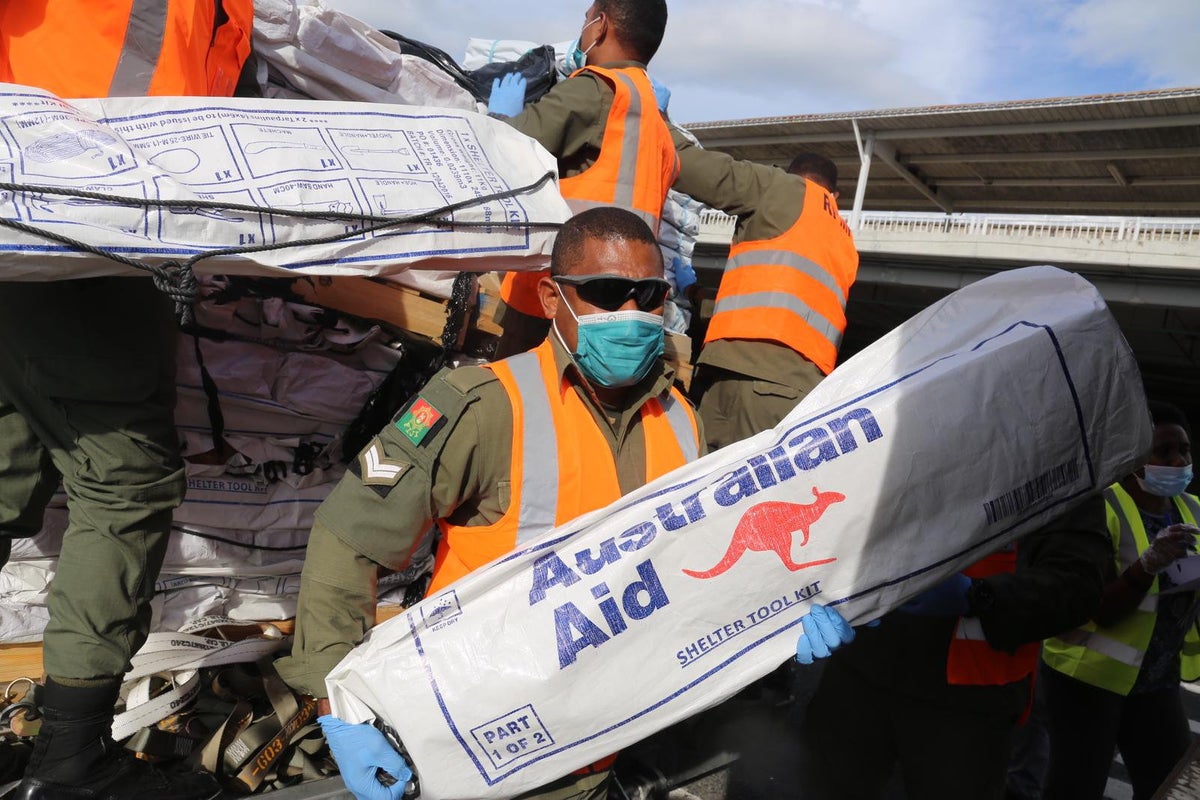
Australians are more open to paying for aid to developing countries this year compared with virtually any other point in the past decade, a survey has found – with this being particularly true of those aware of Donald Trump’s brutal cuts.
The questionnaire, run by pollsters Ipsos, asked a representative group of 700 people in Australia whether their country gave too much in aid, too little or about right.
This year, 29 per cent of those responding to the survey said they thought Australia spent too much on aid, significantly fewer than the 40 per cent holding that view last year. The survey has been commissioned by the Development Policy Centre every year since 2015 and these results were more positive towards aid than in any year bar one in that time.
The research then went further, looking at how news of swingeing aid cuts by the US influenced Australians’ views on their own tax dollars going overseas. It found that people given an article to read about Donald Trump’s deep cuts – which have disrupted access to medicines, nutrition and economic assistance for millions – were more likely to say Australia was spending too little rather than too much on aid.
In every survey for the last ten years – including this year – more Australians said their government gave too much than too little.
The group given the article to read before responding were also more likely to say the purpose of aid was to help people in need, versus advancing Australia’s own national interests.
“The fact that a simple 144 word article could change people’s attitude to this extent, speaks to the potential for a more concerted messaging campaign,” the Development Policy Centre researchers said.
In Australia, aid spending has been falling since 2014/15 and it spends less than many other developed countries, hitting 0.19 per cent of Gross National Income (GNI) in 2024.
Richer countries all over the world have been cutting their overseas development spending in recent years – most dramatically and rapidly in the US. In the UK, aid spending is falling by 40 per cent from 0.5 to 03 per cent GNI over the next three years.
While the proportion saying their country spent too little on aid remained more or less the same, with the biggest growth was in people describing aid spend as “about right”.
The Development Policy Centre said the findings indicated Australians had become “more favourably disposed to aid” – likely because of good economic news at home.
“Inflation is down, interest rates are coming down and unemployment is still lower than it was pre-Covid,” wrote researchers Terence Wood and Cameron Hill in an article about the survey. “It’s likely that Australians feel that their own circumstances are improving and so are less hostile to helping overseas”.
This article is part of The Independent’s Rethinking Global Aid project
